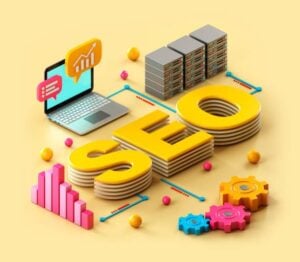In today’s digital landscape, where social media platforms, business directories, and numerous online channels abound, one might question the necessity of a website for a business. The answer remains a resounding yes, and here’s why:
A website acts as your digital storefront, available to potential customers round the clock, providing comprehensive information about your products, services, and brand. While social media platforms and business listings serve their purpose, they often lack the depth and customization that a dedicated website can offer. Here are some reasons why having a website is still crucial for any business:
Establishing Online Presence and Credibility
In the modern era, consumers frequently turn to the internet to research products, services, and businesses before making purchasing decisions. A professional website not only establishes your online presence but also enhances your credibility as a legitimate and trustworthy business entity. Without a website, potential customers may question the authenticity of your business or opt for competitors with a robust online presence.
Accessibility and Convenience
Unlike physical storefronts with limited operating hours, a website provides continuous accessibility to your offerings. Customers can browse through your products, make purchases, or reach out to you at their convenience, regardless of time or location. This accessibility enhances customer experience and expands your business’s reach beyond geographical boundaries.
Marketing and Branding Opportunities
Your website serves as a central hub for your digital marketing efforts, enabling you to showcase your brand identity, values, and offerings consistently. Through features like blogs, testimonials, and multimedia content, you can engage with your audience, build brand awareness, and establish authority within your industry. Integrating social media links and email sign-ups on your website allows you to amplify your marketing efforts across multiple channels.
Control and Customization
Unlike social media platforms or business directories, where your presence is subject to their algorithms and guidelines, a website grants you full control over your online presence. You can customize the design, content, and functionality of your website to align with your brand image and business objectives. This level of control enables you to create a unique and tailored experience for your audience, enhancing brand consistency and customer engagement.
E-commerce and Sales Opportunities
For businesses involved in selling products or services, an e-commerce website opens up new avenues for sales and revenue generation. With an online store, you can reach a broader audience, streamline the purchasing process, and offer various payment options to accommodate customer preferences. Additionally, features such as product recommendations, customer reviews, and personalized shopping experiences can boost conversion rates and drive sales.
Search Engine Visibility and Discoverability
Having a website is essential for improving your visibility and discoverability in search engine results. By optimizing your website for relevant keywords, creating high-quality content, and implementing SEO best practices, you can enhance your search engine rankings and attract organic traffic to your website. This increased visibility not only boosts brand exposure but also generates leads and fosters business growth.
Social Media vs. Website: Finding the Balance
While social media platforms have surged in popularity, particularly during the pandemic, research suggests that websites still play a crucial role in establishing a strong online presence. Both platforms offer unique advantages, making them essential for business marketing.
Cost of Creation
Social media platforms are generally free to use, making them a cost-effective option, especially for startups with limited budgets. On the other hand, websites entail expenses for development and management, making social media a preferable choice for businesses with financial constraints.
Ownership Freedom
Social media platforms impose limitations on users, subjecting them to platform rules and potential changes in ownership. In contrast, websites offer ownership freedom, allowing businesses to maintain control over their online presence without external constraints.
The Trust Factor
Professional websites instill trust and credibility, showcasing a business’s credentials and expertise. This trust factor is often lacking in social media accounts, which can be set up by anyone and are susceptible to scams and frauds.
Content for Customers
Websites provide a centralized platform for showcasing products, services, and brand information, fostering credibility and professionalism. Social media platforms, however, leverage visual storytelling and community building to engage with a broader audience, particularly in visually oriented industries.
Search Engine Ranks
Websites enjoy higher visibility in search engine results, making them preferable for businesses seeking a strong online presence. While social media platforms can complement website efforts, websites remain the primary choice for driving organic search traffic and generating quality leads.
Tracking of Data
Websites offer comprehensive data tracking capabilities through tools like Google Analytics, enabling businesses to analyze user behavior and refine their marketing strategies. In contrast, social media platforms provide limited data insights, making it challenging to measure the effectiveness of marketing efforts.
Connection with Customers
Social media facilitates personal connections with customers through direct communication and engagement opportunities. By leveraging social media, businesses can build brand loyalty and foster a sense of community among followers.
While social media platforms and business directories play a role in your online presence, having a website remains essential for any business looking to thrive in the digital age. A website serves as your digital storefront, providing credibility, accessibility, marketing opportunities, control, e-commerce capabilities, and search engine visibility. By investing in a professional website, you can strengthen your brand, engage with your audience, and drive business success.
Ready to take your business online? Contact us today to learn more about our website development services and how we can help you establish a strong digital presence.




